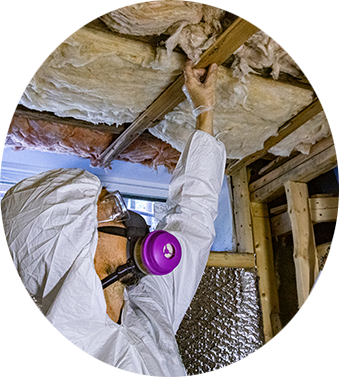
Our first priority is the health and safety of our communities.
The energy efficiency industry endorses guidance regarding social distancing, travel restrictions, and work from home policies. While we understand that the challenges facing our industry right now are all too widespread, many energy efficiency businesses and trade allies are facing severe layoffs, the effects of which will ripple outward long after the crisis ends. The residential energy efficiency sector, in particular, is not able to perform home energy audits and at-home upgrades; this includes significant service to economically vulnerable low- to moderate-income customers.

Right now, skilled energy efficiency workers can offer critical assistance.
We’re eager to put all our resources to work helping New Jersey and the rest of the country through this crisis. There is ample opportunity to restore and accelerate economic activity consistent with health recommendations. Empty schools, campuses, and government buildings can be safely retrofitted. Building scientists and engineers can assist with temporary conversion of buildings into medical facilities.

Energy efficiency will be the core of the recovery.
Energy efficiency accounts for 38,000 jobs in New Jersey and has been growing steadily. These are local jobs that cannot be outsourced – they just need an infusion of investment and permission to work. Energy efficiency programs have been proven to scale nimbly; for example, the 2009 stimulus package prioritized housing retrofits through the successful Weatherization Assistance Program.

Clear guidance and regulatory flexibility will safeguard this industry.
EEA-NJ joins others in the business community in urging Congress to swiftly pass a short-term relief package to allow businesses to meet payroll and retain workers.
From the state government, we are asking for partnership and the flexibility to continue providing services in accordance with the latest public health recommendations. This includes the release of utility energy efficiency program dollars to support work that energy efficiency vendors can continue to conduct during the shut-down, such as virtual trainings and activity categorized as essential business.
Action is needed in the short-term to ensure that workers and supply chains are available when on-site work resumes, and over the medium term to provide regulatory flexibility to utilities and program implementers to account for the disruption. We are eager to collaborate with regulators, utilities, and other key stakeholders to develop a sensible path forward.
We also request clear guidance from state authorities about what work may resume and when. EEA-NJ member companies stand ready to comply with the evolving guidance and best practices from state authorities and health experts. We seek permission to perform essential work to assist the pandemic response and restore the economy.